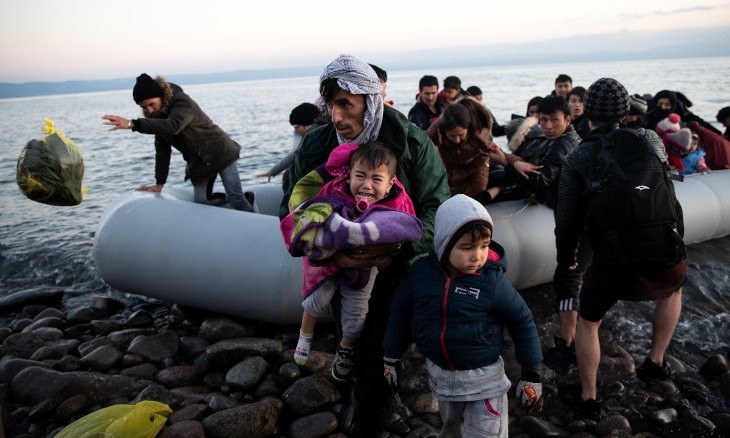Erdoğan refuses to attend trilateral summit with Greece, Bulgaria on migration crisis
Turkish President Recep Tayyip Erdoğan has refused to attend a trilateral summit with Greece and Bulgaria to discuss the recent migrant crisis after reports of migrants having been killed on the Greek border surfaced.
Duvar English
Turkish President Recep Tayyip Erdoğan has refused to attend a trilateral summit with Greece and Bulgaria to discuss the recent migrant crisis.
Bulgarian Prime Minister Boyko Borisov said on March 2 that he had offered to host the summit in Sofia but Erdoğan declined his offer after reports of migrants having been killed on the Greek border surfaced.
“I put a very great deal of effort for a trilateral summit, or a summit of a larger format, to be held in Sofia. We could have maybe succeeded in this. But at that point, information regarding the killed migrants arrived. And in fact, President [Erdoğan] was ready to come to Sofia, but since he did not desire to sit at the same table with Greek Prime Minister Kyriakos Mitsotakis, the summit has been cancelled,” Borisov said during a joint press meeting with Erdoğan in the Turkish capital Ankara.
Erdoğan said that the Greek border police had killed two migrants and severely wounded another on March 2 as the migrants were trying to cross to Greece from Turkey.
Following Erdoğan's comments, Greek government spokesman Stelios Petsas said that no shots have been fired by Greek border forces against any individuals attempting to enter the country illegally.
"The contrary amounts to no more than gross and deliberate misinformation: Fake News," Petsas tweeted.
Earlier, Turkish security sources told Reuters that a Syrian migrant was shot dead by Greek border police on March 2, as he was trying to cross Turkey’s western border. This claim was similarly denied by Athens.
 Two Syrians die while attempting to cross border after Turkey opens frontier
Two Syrians die while attempting to cross border after Turkey opens frontierThe incident occurred after the Turkish government opened its border last week to let migrants reach Europe.
Under a 2016 EU agreement with Turkey, Ankara agreed to stop migrants from crossing into the EU and accept most of them back if they did cross, effectively ending a crisis which toppled several EU governments and fuelled the rise of the far right.
In return, the EU offered funds. But Turkey says the arrangement is in jeopardy with a new wave of Syrian refugees on its southern border, driven there by an escalation of fighting since December.
Erdoğan said on March 2 that the European Union and world public opinion do not understand the situation of Turkey, which already hosts more than 4 million refugees.
Erdoğan noted that the EU had not fully met the requirements under the 2016 EU-Turkey refugee deal and expectations on responsibility sharing remained "unanswered."
He said Turkey no longer wants Europe's offer of 1 billion euros in migrant aid. "I have also told [Bulgarian] Prime Minister Borisov; we do not want this money anymore. The Turkish Republic, which has so far spent 40 billion euros [for Syrians], would also find a way to earn that money," Erdoğan said.
